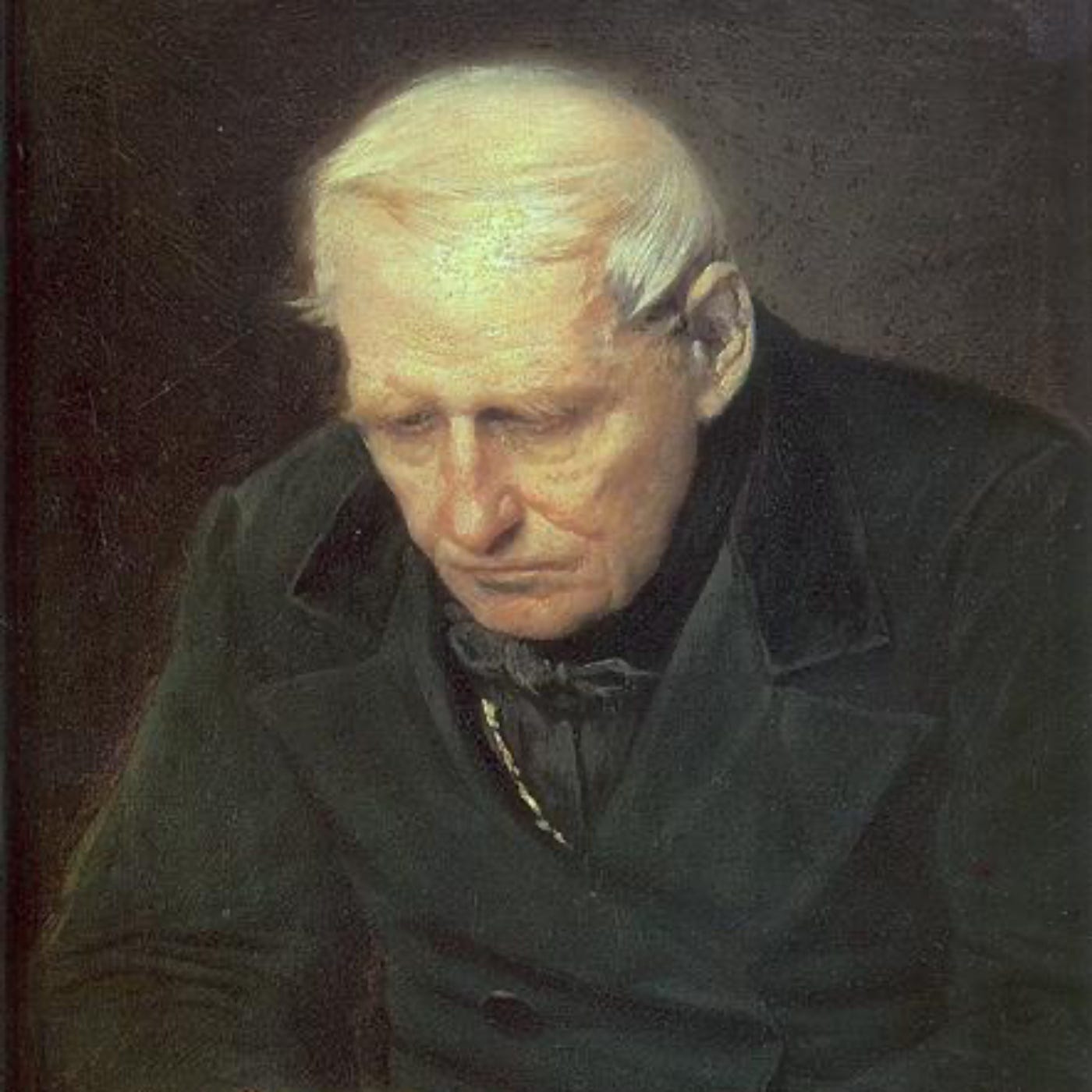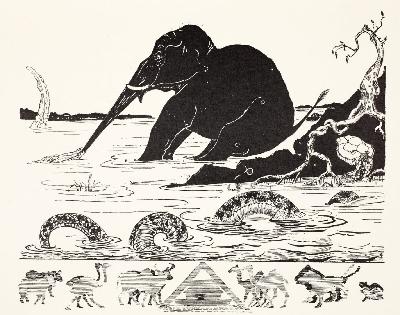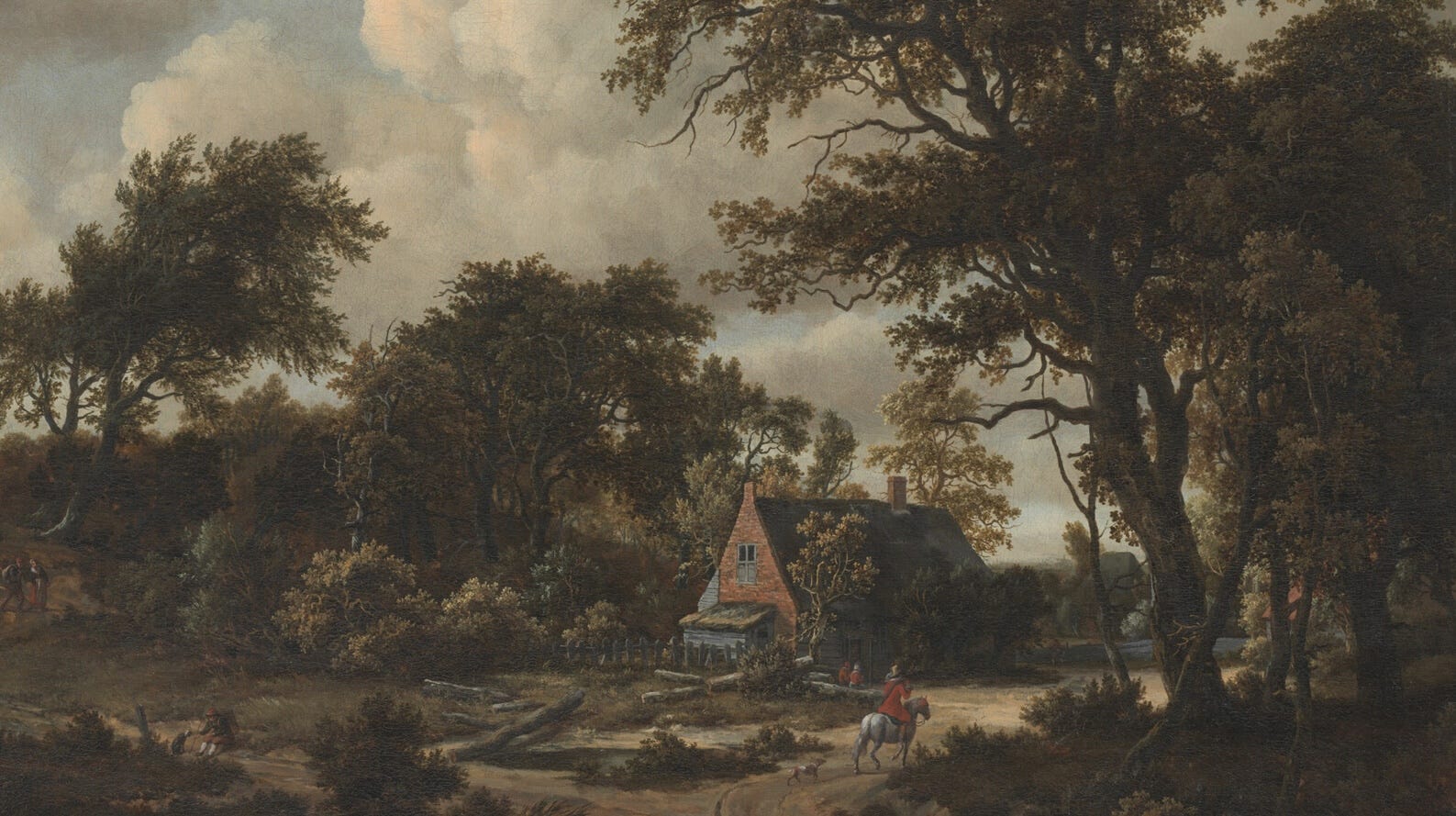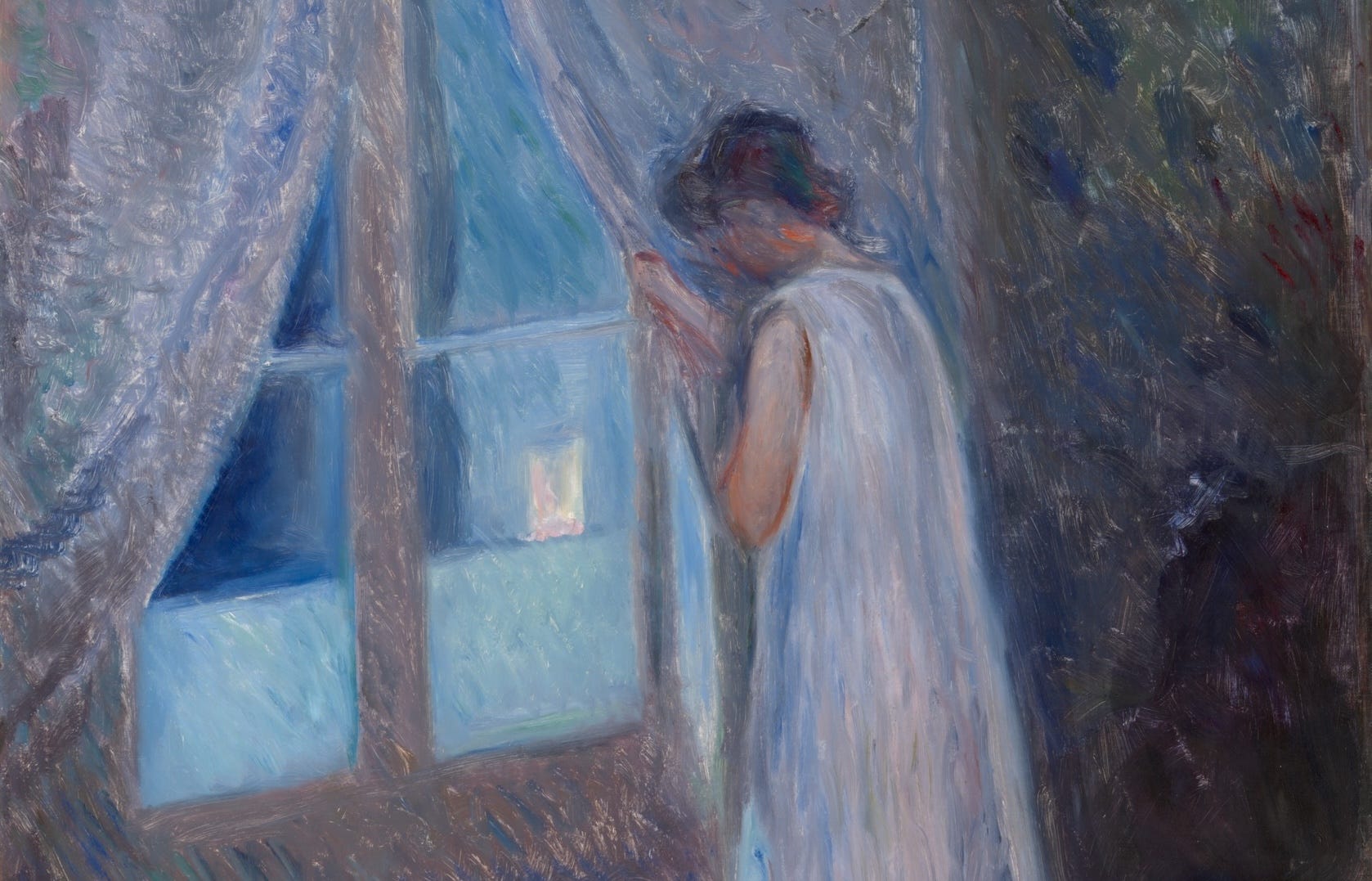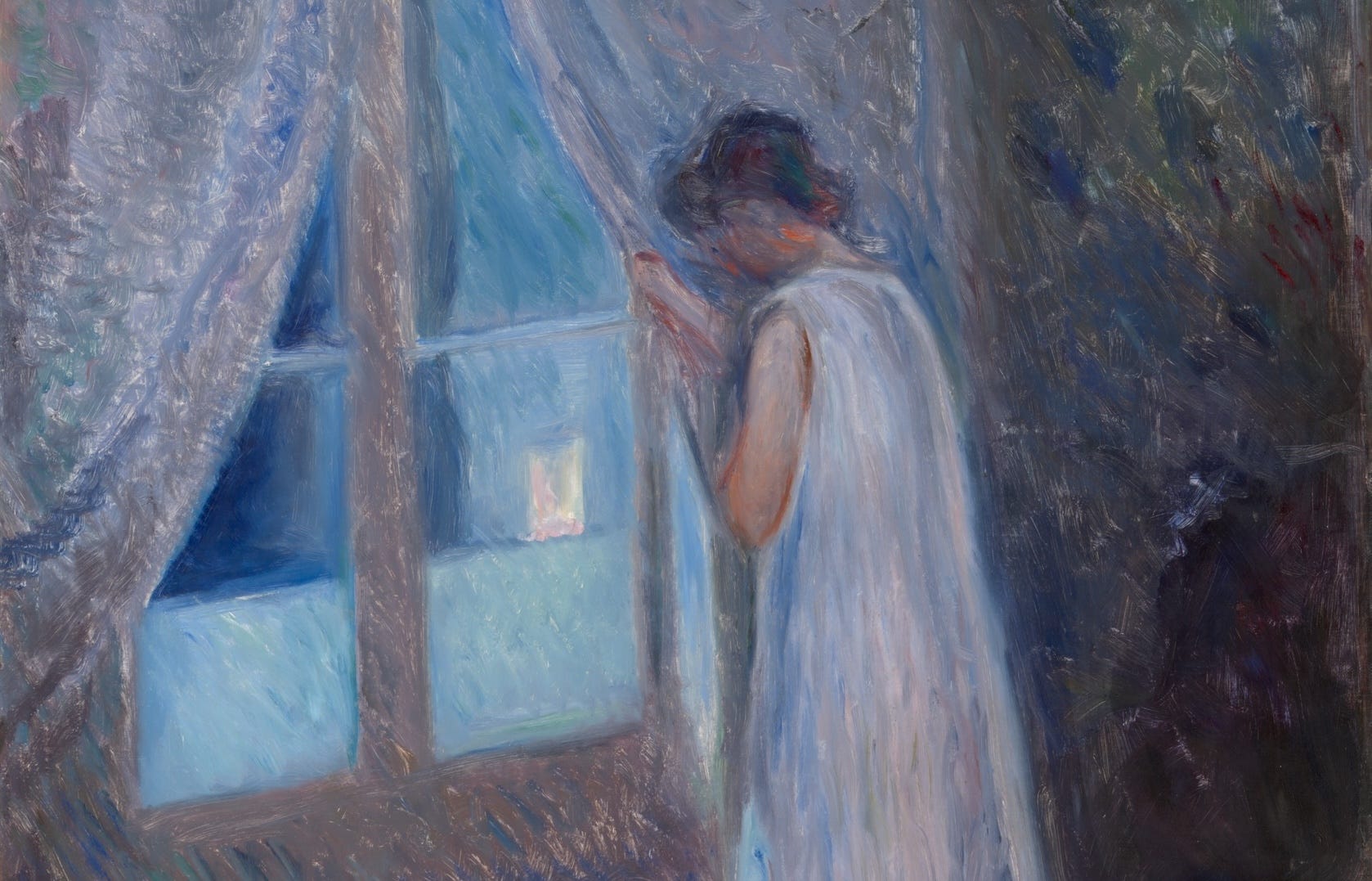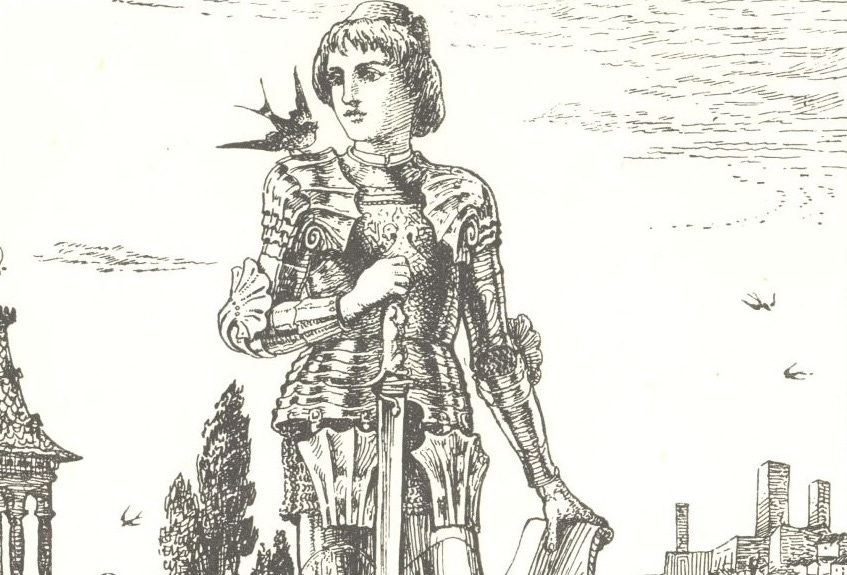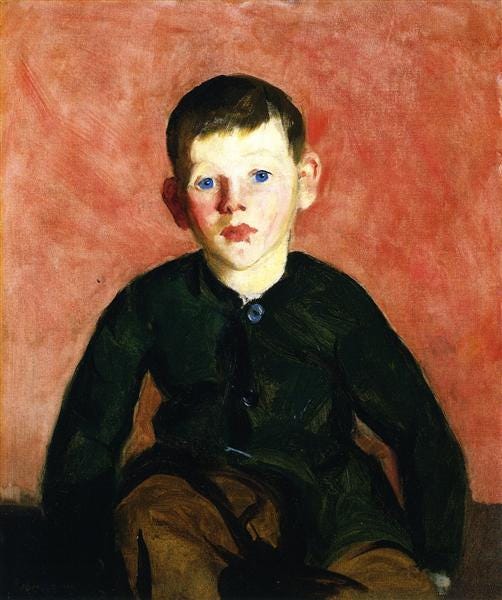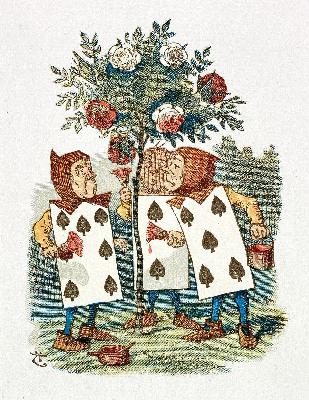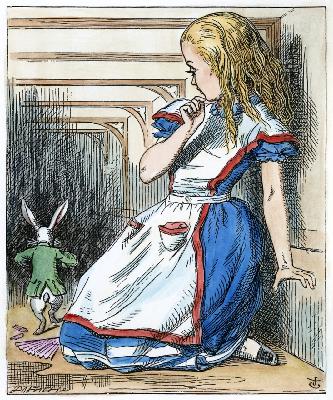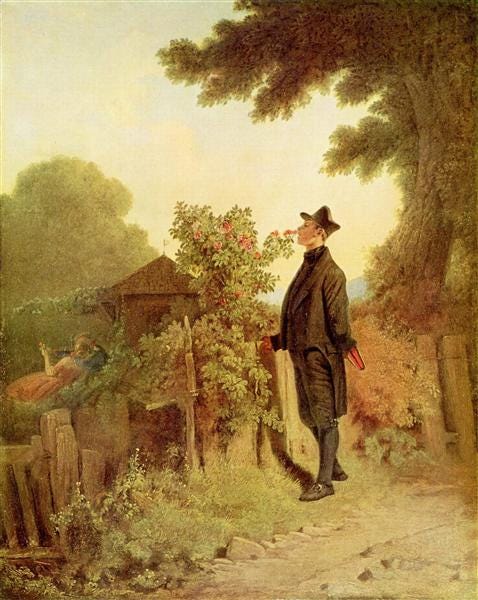Discover Classics Read Aloud
Classics Read Aloud

Classics Read Aloud
Author: Ruby Love
Subscribed: 5Played: 23Subscribe
Share
© Ruby Love
Description
21 Episodes
Reverse
"Quality" by John Galsworthy“Then, placing my foot on a piece of paper, he would two or three times tickle the outer edges with a pencil and pass his nervous fingers over my toes, feeling himself into the heart of my requirements.”One hesitates to draw too many conclusions about the personality of an author based solely on his or her written work. That said, I was hardly surprised in my research to find John Galsworthy described as a quiet intellectual, somewhat aloof and reserved. It seemed to me only natural that someone inclined to introspection would write a story like “Quality,” which patiently burrows into the modest but artful industriousness of a cobbler’s shop, like a mouse burrowing into the toe of a shoe.John Galsworthy began writing in the 1890s after meeting Joseph Conrad, with whom he developed a long and mutually supportive friendship. Having been in the midst of a budding legal career, this allowed him to continue working pen-to-paper and simply alter the objective of the output. He nonetheless wrote under a pseudonym initially—John Sinjohn—to avoid disappointing his family with the shift. By 1904, Galsworthy was writing under his own name and in 1906 published The Man of Property, the first book of what became the renowned The Forsyte Saga series, later popularized with a BBC episodic in 1967 (and more recently with the excellent remake starring Damien Lewis in 2002).Much of Galsworthy’s work circulates around the struggle between the individual and society during a period of rapid industrial upheaval. In “Quality,” originally presented as a play and subsequently published as a short story, we are exposed to the effect of this change on the business of a high-end bootmaker, through the eyes of a lifelong customer. The plight of the hard-working Gessler brothers asks the reader to acknowledge the hypocrisy and trade-offs inherent in “progress.” Galsworthy doesn’t bemoan the progress, per se, simply the associated casualty of quality and the respect its craftspeople once commanded.Please enjoy…Subscribe to Classics Read Aloud to receive future readings, including commentary and interesting "et cetera" tangent links, right to your inbox: https://classicsreadaloud.substack.com/subscribe This is a public episode. If you would like to discuss this with other subscribers or get access to bonus episodes, visit classicsreadaloud.substack.com
The Man Who Was Thursday (Part 5) by G.K. Chesterton This is a public episode. If you would like to discuss this with other subscribers or get access to bonus episodes, visit classicsreadaloud.substack.com
The Man Who Was Thursday (Part 3) by G. K. Chesterton This is a public episode. If you would like to discuss this with other subscribers or get access to bonus episodes, visit classicsreadaloud.substack.com
The Man Who Was Thursday by G. K. Chesterton This is a public episode. If you would like to discuss this with other subscribers or get access to bonus episodes, visit classicsreadaloud.substack.com
The Man Who Was Thursday (Part 4) by G.K. Chesterton This is a public episode. If you would like to discuss this with other subscribers or get access to bonus episodes, visit classicsreadaloud.substack.com
The Man Who Was Thursday (Part 2) by G. K. Chesterton This is a public episode. If you would like to discuss this with other subscribers or get access to bonus episodes, visit classicsreadaloud.substack.com
"The Kiss" by Anton Chekhov“In the course of that moment he had told everything, and it surprised him dreadfully to find how short a time it took him to tell it.”The writer Anton Chekhov was also the doctor Anton Chekhov. Between these two worlds, he supported his extended family with the practice of medicine and supported his artistic passions with the pen, declaring, “Medicine is my lawful wife and literature is my mistress.”Anyone can guess which one he found more alluring.In his short story “The Kiss,” Chekhov aligns our attention with a rather lonely, insecure Russian officer named Ryabovitch. In today’s parlance, you could say the poor guy suffers from “low T.” Through an unorthodox chance encounter, Ryabovitch’s sleeping imagination is sparked, igniting a dormant verve. He suddenly discovers a confidence, albeit fleeting, that he may not, after all, be left out of a normal sort of life. This awakening of the spirit is reflected in a number of small details—the trilling of a nightingale, the tingling sensation, almost of peppermint, on the cheek, the sense of time folding in on itself. That is the very allure of Chekhov’s style…out of the mundane is born creation.The playwright and critic Maurice Valency remarked of Chekhov, “His great talent lay in his sensitive depiction of life around him, the physical and psychic landscape in which he lived.” While Valency made this remark after, rather derogatorily, declaring Chekhov to have no philosophical point of view, the description is apt. (Although it must be said that Valency himself was known best for his stage adaptations of the work of others…how’s that for a point of view?)Chekhov certainly had an angle. Once one reads but a handful of his short stories, it becomes abundantly clear that he was burdened with realism and buoyed by romanticism. Indeed, in reaction to seeing his plays continually brought to life as tragedies, he protested with his philosophical prod towards optimism:“All I wanted was to say honestly to people: ‘Have a look at yourselves and see how bad and dreary your lives are!’ The important thing is that people should realize that, for when they do, they will most certainly create another and better life for themselves.”I think you’ll agree that “The Kiss” delivers exactly that…a beckoning towards a better life, a more enduring happiness.Please enjoy… This is a public episode. If you would like to discuss this with other subscribers or get access to bonus episodes, visit classicsreadaloud.substack.com
Just So Stories, A Selection, by Rudyard Kipling“But different folk have different views;I know a person small –She keeps ten million serving-men,Who get no rest at all!She sends ‘em abroad on her own affairs,From the second she opens her eyes –One million Hows, two million Wheres,And seven million Whys!For a man who spent so much of his life traipsing between far-flung places in the world, it strikes me that Rudyard Kipling seemed to hold “home” in high regard. It was circumstance rather than wanderlust that spread his life around the globe, and his attentions continued to revolve around the places and people that signaled comfort.Perhaps this spirit was driven by the discomfort of his early life. Born in India, Kipling was shipped off to England for schooling at the tender age of five and, rather tragically, experienced a miserable, desolate boarding life in the tense home of a couple who accommodated children for British nationals abroad.Kipling eventually returned to India as a young man and took work as an assistant editor at a local paper, a job secured for him by his father in Lahore. He spoke fondly of joining his family for annual vacations to Simla (now Shimla), the summer capital of British India, recalling:“My month’s leave at Simla, or whatever Hill Station my people went to, was pure joy – every golden hour counted. It began in heat and discomfort, by rail and road. It ended in the cool evening, with a wood fire in one’s bedroom, and next morn – thirty more of them ahead! – the early cup of tea, the Mother who brought it in, and the long talks of us all together again. One had leisure to work, too, at whatever play-work was in one’s head, and that was usually full.”Life went on. Kipling began writing for himself. He married and had children. They moved to the United States, where they had a “good wholesome life” in Vermont, then back to England, and travelled frequently to South Africa. A few phrases in that Simla recollection, though, seemed to be defining visions of bliss: “whatever [place] my people went to” ... “the long talks of us all together” …and, of course, “whatever play-work was in one’s head, and that was usually full.”With a head full of “play-work” (great phrase!), is it any wonder he was a superb storyteller?The first set of Just So Stories was created, not with pen to paper, but the old-fashioned way, with words to ears. Kipling spun these tales for his daughter, Josephine (known as Effie), to help her drift off to sleep at night. Effie was so enamored with his original telling that she would stop to correct him if the story veered off script. They had to be told just so.When Effie died of pneumonia, contracted on a trip the two of them made to the United States from England in 1899, Kipling channeled his loss into completing the collection, accompanied by an equally captivating set of illustrations and poems.Kipling loved fall in the US, and I’m delighted to be publishing this reading in November, on the birthday of a loved one who cherished the Just So Stories. As we’ve just crested the peak of this magnificent season, I have a fresh appreciation for the brilliance in Kipling’s description of the season:“A little maple began it, flaming blood-red of a sudden where he stood against the dark green of a pine-belt. Next morning there was an answering signal from the swamp where the sumacs grow. Three days later, the hill-sides as fast as the eye could range were afire, and the roads paved, with crimson and gold. Then a wet wind blew, and ruined all the uniforms of that gorgeous army; and the oaks, who had held themselves in reserve, buckled on their dull and bronzed cuirasses and stood it out stiffly to the last blown leaf, till nothing remained but pencil-shadings of bare boughs, and one could see into the most private heart of the woods.”Please enjoy this selection…Subscribe to Classics Read Aloud to receive future readings, including commentary and interesting "et cetera" tangent links, right to your inbox: https://classicsreadaloud.substack.com/subscribe This is a public episode. If you would like to discuss this with other subscribers or get access to bonus episodes, visit classicsreadaloud.substack.com
The Willows by Algernon Blackwood“It was as exactly as through we had disturbed some living yet invisible creatures at work.”Before J.J. Abrams captivated millions in the TV series Lost, there was The Twilight Zone. And before Twilight Zone, there was H.P. Lovecraft. And before H.P. Lovecraft, there was Algernon Blackwood, the original “ghost man.”Blackwood was born into a rigid, fearful environment. Raised by Evangelical Calvinists of some influence, he reached the age of twenty-one without having ever seen a movie or held a pack of playing cards, let alone having imbibed in alcohol or cigarettes. He escaped into his imagination and grew to become fascinated with mysticism, Buddhism, and the paranormal.“The Willows” draws upon Blackwood’s experience canoeing the Danube, long before its waters were populated with Viking River Cruises. The wild setting becomes a forceful character in this gothic horror tale, pulling us towards a stirring, intriguing crescendo of psychological depth.Please enjoy… This is a public episode. If you would like to discuss this with other subscribers or get access to bonus episodes, visit classicsreadaloud.substack.com
“The night grew darker and darker; the stars seemed to sink deeper in the sky, and driving clouds occasionally hid them from his sight. He had never felt so lonely and dismal.”When Washington Irving published “The Legend of Sleepy Hollow,” he cleverly chose a well-known British publisher, John Murray, despite being an American himself. This credentialing, paired with the captivating nature of the tale, helped skyrocket both Irving’s popularity and the reputation of American writing more broadly. The story was quickly picked up by broad audiences of all ages and never went out of print.Now imagine being the fellow named Ichabod Crane, in real life, while all this breathless storytelling of a gangly, lovelorn schoolmaster by that very name was gaining traction on both sides of the Atlantic.Such a fellow existed! He and Irving met while Crane was stationed at Fort Pike during the War of 1812. It seems that Irving borrowed only the man’s fantastic name for the tale and not his personality or physical traits, but the real Mr. Crane was apparently none too pleased all the same.Irving stitched together colorful details from all over in patching together this charmingly frightful tale. From elements of Dutch folklore, plotlines from friend Sir Walter Scott’s “The Chase,” which itself was based on a translation of the German poem “The Wild Huntsman,” to historical happenings of the Hudson Valley region, and the very character of Ichabod Crane, who was modeled after a Kinderhook schoolmaster named Jesse Merwin, whom he met while visiting the area in 1809.Mr. Merwin reportedly did not mind the association.Please enjoy…Subscribe to Classics Read Aloud to receive future readings, including commentary and interesting "et cetera" tangent links, right to your inbox: https://classicsreadaloud.substack.com/subscribe This is a public episode. If you would like to discuss this with other subscribers or get access to bonus episodes, visit classicsreadaloud.substack.com
Subscribe to Classics Read Aloud to receive future readings, including commentary and interesting "et cetera" tangent links, right to your inbox: https://classicsreadaloud.substack.com/subscribeThe Turn of the Screw, Part 2, Henry JamesHenry James was raised as a member of the American elite—shuttling between the New and the Old Continent—under the watchful attention, customary to the time, of governesses and household staff. How titillating it must have been to reflect these attentions back in devising a plot for “The Turn of the Screw.” This renowned ghost story unfolds on the grounds of a refined English estate, home to two orphaned children. Here, James pushes the question of sanity onto their governess, and the question of propriety onto two prior members of the estate’s staff, both since deceased under suspicious circumstances, and the question of collusion onto the young wards.How deliciously twisted.So quietly terrifying is this tale that James, rather marvelously, scared even himself in its preparation, telling poet Edmund Gosse, “I had to correct the proofs of my ghost story last night, and when I had finished them I was so frightened that I was afraid to go upstairs to bed!”It is quite a feat, frankly, that James was able to develop such an authentic scare given that he rather regretted having to write it. Despite his well-heeled upbringing, the author found himself in financial straits. To solve for this, he lowered himself to taking on serialized magazine work, acknowledging his pained reluctance in a letter to friend William Dean Howells:All thanks for your appreciation, & your wife’s, of my Literature drivel. I have succumbed, in that matter, purely to the pecuniary argument, backing H. Harper’s earnest approach. It means £40 a month, which I simply couldn’t afford not to accept. But I am too out of it all, & too ignorant. Perhaps, indeed, that helps & is a merit. You’re delightful about the T. of the Screw-the most abject, down-on-all-fours pot-boiler, pure & simple, that a proud man brought low ever perpetrated. He will do it again & again, too, even for the same scant fee: it’s only a question of a chance!Drivel! History certainly doesn’t think so. “T. of the Screw,” as he called it, became one of those stories that refused to fade away, largely because its many ambiguities prompt continued intrigue and interrogation, and James eventually came to appreciate it as a valid pillar of his catalog.Please enjoy…Help Classics Read Aloud grow by “♡ Liking” this post and sending it to a friend—word of mouth is more powerful than any algorithm. Thank you! This is a public episode. If you would like to discuss this with other subscribers or get access to bonus episodes, visit classicsreadaloud.substack.com
Subscribe to Classics Read Aloud to receive future readings, including commentary and interesting "et cetera" tangent links, right to your inbox: https://classicsreadaloud.substack.com/subscribeThe Turn of the Screw, Part 1 , by Henry JamesHenry James was raised as a member of the American elite—shuttling between the New and the Old Continent—under the watchful attention, customary to the time, of governesses and household staff. How titillating it must have been to reflect these attentions back in devising a plot for “The Turn of the Screw.” This renowned ghost story unfolds on the grounds of a refined English estate, home to two orphaned children. Here, James pushes the question of sanity onto their governess, and the question of propriety onto two prior members of the estate’s staff, both since deceased under suspicious circumstances, and the question of collusion onto the young wards.How deliciously twisted.So quietly terrifying is this tale that James, rather marvelously, scared even himself in its preparation, telling poet Edmund Gosse, “I had to correct the proofs of my ghost story last night, and when I had finished them I was so frightened that I was afraid to go upstairs to bed!”It is quite a feat, frankly, that James was able to develop such an authentic scare given that he rather regretted having to write it. Despite his well-heeled upbringing, the author found himself in financial straits. To solve for this, he lowered himself to taking on serialized magazine work, acknowledging his pained reluctance in a letter to friend William Dean Howells:All thanks for your appreciation, & your wife’s, of my Literature drivel. I have succumbed, in that matter, purely to the pecuniary argument, backing H. Harper’s earnest approach. It means £40 a month, which I simply couldn’t afford not to accept. But I am too out of it all, & too ignorant. Perhaps, indeed, that helps & is a merit. You’re delightful about the T. of the Screw-the most abject, down-on-all-fours pot-boiler, pure & simple, that a proud man brought low ever perpetrated. He will do it again & again, too, even for the same scant fee: it’s only a question of a chance!Drivel! History certainly doesn’t think so. “T. of the Screw,” as he called it, became one of those stories that refused to fade away, largely because its many ambiguities prompt continued intrigue and interrogation, and James eventually came to appreciate it as a valid pillar of his catalog.Please enjoy…Help Classics Read Aloud grow by “♡ Liking” this post and sending it to a friend—word of mouth is more powerful than any algorithm. Thank you! This is a public episode. If you would like to discuss this with other subscribers or get access to bonus episodes, visit classicsreadaloud.substack.com
Subscribe to Classics Read Aloud to receive future readings, including commentary and interesting "et cetera" tangent links, right to your inbox: https://classicsreadaloud.substack.com/subscribeThe Shadows on the Wall by Mary E. Wilkins Freeman, 1903Mary Wilkins Freeman was the grande dame of writers, recording “quiet” New England life at the turn of the twentieth century. As the first recipient of the William Dean Howells Gold Medal for Distinguished Work in Fiction and one of the first women to receive membership in the National Institute of Arts and Letters, it is a shame she isn’t better remembered! Hard to compete with Mark Twain, I suppose.Alas, she was prodigious, and her work is widely available on Gutenberg for those who care to find it. Or, you can simply rely on me to bring you some highlights of her oeuvre, including this outstanding, well-paced ghost story, “The Shadows on the Wall.”In this narrative, we are privy to the private conversations and evening life of the Glynn siblings, who are mourning and puzzling over the sudden death of their brother, Edward. I will brook no spoilers, but will instead stay mirthful in the knowledge that many of you will experience an “ah ha” moment when it dawns on you that the biggest spoiler is hiding in plain sight!Please enjoy… This is a public episode. If you would like to discuss this with other subscribers or get access to bonus episodes, visit classicsreadaloud.substack.com
Subscribe to Classics Read Aloud to receive future readings, including commentary and interesting "et cetera" tangent links, right to your inbox: https://classicsreadaloud.substack.com/subscribeThe Fall of the House of Usher, by Edgar Allan PoeOutside of his writing, Edgar Allan Poe led a rather unremarkable life. It was an existence that would give any mother cause for concern. Not his, for Poe was an orphan.As a young adult, Poe engaged in indiscriminate gambling, such that his debts forced him to drop out of the University of Virginia. He subsequently enlisted in the army and was then accepted to West Point, where his insubordination led to expulsion. It was at this time that Poe committed himself to life as a writer. A short life it was, for he was discovered unconscious in a Baltimore gutter at the age of 40 and died shortly thereafter.Poe chased the themes of isolation and despair into his work as well. In “The Fall of the House of Usher,” these motifs are entwined not only with the psychology of the characters—ailing siblings Roderick and Madeline Usher—but also into the setting itself: “the physique of the gray walls and turrets, and of the dim tarn into which they all looked down, had at length brought about upon the morale of [Roderick’s] existence.”Here, the house and its inhabitants are solely confined. All is Usher…and Poe’s ability to fold the reader into a secretive envelope of haunting intrigue is unmatched.Please enjoy…Before you float off to enjoy the story, please help Classics Read Aloud grow by “♡ Liking” this post and sending it to a friend—word of mouth is more powerful than any algorithm. Thank you! This is a public episode. If you would like to discuss this with other subscribers or get access to bonus episodes, visit classicsreadaloud.substack.com
Subscribe to Classics Read Aloud to receive future readings, including commentary and interesting "et cetera" tangent links, right to your inbox: https://classicsreadaloud.substack.com/subscribe"The Happy Prince" & "The Selfish Giant" by Oscar WildeOscar Wilde is most often known for his witticisms, which can lead one to assume he moved in an air of lightness. Words like “dazzling,” “frivolous,” and “enchanting” are often bandied about in describing his personality and presence in a room.And yet, Wilde’s fairy tales are anything but. “The Happy Prince” and “The Selfish Giant” bring dazzling imagery, surely, of glistening gems and flowering trees, but we are led by these attractive scenes into a confrontation with deeper themes. As Neil Philip writes in his introduction to the 2022 edition, “behind the surface glitter of his phrasemaking lay a thinking mind, which used wit as a snare for truth.” Wilde explores humility, longing, and sacrifice in these brief stories in ways understood by children and adults alike.Please enjoy…Before you float off to enjoy the story, please help Classics Read Aloud grow by “♡ Liking” this post and sending it to a friend—word of mouth is more powerful than any algorithm. Thank you! This is a public episode. If you would like to discuss this with other subscribers or get access to bonus episodes, visit classicsreadaloud.substack.com
Subscribe to Classics Read Aloud to receive future readings, including commentary and interesting "et cetera" tangent links, right to your inbox: https://classicsreadaloud.substack.com/subscribe"The Coup de Grace" by Ambrose Bierce & "Araby" by James JoyceSuffering is a fact of the human condition. Shaping it has been the basis of many religions, and coming to terms with it the lifeblood of many a writer’s work. This unavoidable state of anguish is, mercifully, both temporary and varied.In today’s pair of stories, we’ll take a voyeur’s seat to anguish through equally varied eyes: first, through those of a soldier confronted with the brutal injury of a dear friend and sergeant under his command; and second, through those of a teenage boy yearning for recognition and affection in a world he is only just beginning to sort through.Ambrose Bierce, author of our first story, fought for the Union in the US Civil War. Much of his work flows from that experience, and his writing is characterized by the intensity of the psychological toll extracted on the battlefield. In “The Coup de Grâce,” published in 1889 in the San Francisco Examiner, Bierce reflects on an impossible decision presented to him during the war, leading the story’s Captain Madwell to take action he himself could not. You’ll be left with no question as to why this remains one of Bierce’s most enduring works.In our second narrative for this reading, James Joyce brings us into the intimate thoughts of someone no longer a boy, and not yet a man. Pulled from The Dubliners, a collection of short stories Joyce wrote to commemorate the phases of Irish life at the turn of the century, “Araby” oozes with pathos and understanding. Completed in 1905, The Dubliners was left unpublished for nine years on the grounds of indecency. Those days are long gone, and readers for generations have been the better for it.Please enjoy…Before you float off to enjoy the story, please help Classics Read Aloud grow by “♡ Liking” this post and sending it to a friend—word of mouth is more powerful than any algorithm. Thank you! This is a public episode. If you would like to discuss this with other subscribers or get access to bonus episodes, visit classicsreadaloud.substack.com
Subscribe to Classics Read Aloud to receive future readings, including commentary and interesting "et cetera" tangent links, right to your inbox: https://classicsreadaloud.substack.com/subscribeAlice's Adventures in Wonderland, Chapters 7-12, by Lewis CarrollThe second half of Alice’s Adventures in Wonderland is all about wordplay and games. There are misunderstandings, clarifications, and songs galore as we are yanked, just like Alice, from one gaggle of ridiculous characters to the next.It is curious to me that Carroll chose to conclude the story through the eyes of Alice’s older sister, whom he doesn’t name. Having been riled up in Alice’s dreamscape throughout the book’s entirety, perhaps this is a nicety…a sympathetic way that Carroll excuses us from having to experience Alice’s reconciliation of her adventures into her wakeful reality. We can ponder, as her loving sister does, how Alice may one day “remember her own child life, and the happy summer days.”Please enjoy…Before you float off to enjoy the story, please help Classics Read Aloud grow by “♡ Liking” this post and sending it to a friend—word of mouth is more powerful than any algorithm. Thank you! This is a public episode. If you would like to discuss this with other subscribers or get access to bonus episodes, visit classicsreadaloud.substack.com
Subscribe to Classics Read Aloud to receive future readings, including commentary and interesting "et cetera" tangent links, right to your inbox: https://classicsreadaloud.substack.com/subscribeAlice's Adventures in Wonderland, Chapters 1-6, by Lewis CarrollWhen I first conceived of the concept for Classics Read Aloud, I had Alice’s Adventures in Wonderland near the top of my list, but rather dismissed it as resting on ground that was frankly too well-trodden. Hadn’t everyone read this tale to death?And then I read a wonderful exploration of Alice’s Adventures in Dispatches from Biblioll College on Substack and had to laugh at my undeserved hesitation. Well-trodden ground or not, I hadn’t actually read the book in decades and am probably not alone in that. Boze’s exciting retelling of the history behind Lewis Carroll’s odd creation brought me back to my senses.Although branded as such by the effects of time and of Disney, Alice’s Adventures in Wonderland is no mere children’s book. It is bizarre and complex in its entertainment. If it has been a while since you last visited the original, it is worth a listen with fresh ears and an open mind. I’ll publish this in two halves.Please enjoy... This is a public episode. If you would like to discuss this with other subscribers or get access to bonus episodes, visit classicsreadaloud.substack.com
Big Two-Hearted River by Ernest HemingwayEvery day, dozens of outdoorsmen head out into nature, armed with video cameras, battery packs, and oh-so-many envelopes of instant oatmeal, to capture their communion with nature. And every day, tens of thousands of would-be outdoorsmen tune into YouTube to watch the newest videos coming from the field.The outdoor genre is booming, with estimates easily topping more than 1 billion views per year.One can’t help but wonder if that concentrated energy isn’t chasing just a small taste of what Hemingway offers us with “Big Two-Hearted River.” His short story, published in May of 1925 in the inaugural issue of This Quarter, presents a semi-autobiographical sojourn to the waters of Upper Peninsula, Michigan, where the main character, Nick Adams, goes trout fishing and reminds the reader what a conversation with Mother Nature really sounds like.If you want an example of true mindfulness, this is it. Hemingway doesn’t allow Nick’s thoughts to wander towards the depths of worry, despair, or even hope that are surely there (as they are with all of us). Rather, he reverently savors the doing of this overnight fishing trip and the peaceful, almost gluttonous solitude it affords.“While he waited for the coffee to boil, he opened a small can of apricots. He liked to open cans. He emptied the can of apricots out into a tin cup. While he watched the coffee on the fire, he drank the juice syrup of the apricots, carefully at first to keep from spilling, then meditatively, sucking the apricots down. They were better than fresh apricots.”“Big Two-Hearted River” became the foundation upon which Hemingway built his first collection of short stories, In Our Time. Please enjoy (and don’t miss the “et cetera” section below where I highlight worthy bits and bobs for a merry, classically inspired life)… This is a public episode. If you would like to discuss this with other subscribers or get access to bonus episodes, visit classicsreadaloud.substack.com
Subscribe to Classics Read Aloud to receive future readings, including commentary and interesting "et cetera" tangent links, right to your inbox: https://classicsreadaloud.substack.com/subscribe"The Devoted Friend" by Oscar Wilde & "The Celebrated Jumping Frog of Calaveras County" by Mark TwainThere are a number of well-known themes in classic literature: love, power and corruption, nature versus machine, and on and on. Today’s stories touch upon a lesser acknowledged theme with universal recognition: sometimes, life just isn’t fair.Oscar Wilde was criticized for creating fairy tales that were too mature for children, perhaps by those forgetting that Grimms’ Fairy Tales were very grim indeed. In “Devoted Friend,” a tragic tale of a one-sided friendship, Wilde takes umbrage with do-gooders who find no exhaustion to their superfluous, destructive virtue. (He manages to take a few swipes at the literary scene and literary critics along the way.) The abuse suffered in this story by the ever-humble Little Hans is sure to remind all of us of the value of skepticism!Speaking of skepticism, Mark Twain delivers a deeply cynical take in his folksy tale about a compulsive competitive bet-maker, Jim Smiley, and his over-educated frog. You won’t really know who to root for in “The Celebrated Jumping Frog of Calaveras County,” except, perhaps, Twain himself, who went on to produce his first book after the popularity of this story.These two brief tales make for an entertaining pair. (This was also my first attempt at a drawl, so be kind! I’ll get better with time.) Please enjoy…Before you float off to enjoy the story, please help Classics Read Aloud grow by “♡ Liking” this post and sending it to a friend—word of mouth is more powerful than any algorithm. Thank you! This is a public episode. If you would like to discuss this with other subscribers or get access to bonus episodes, visit classicsreadaloud.substack.com


